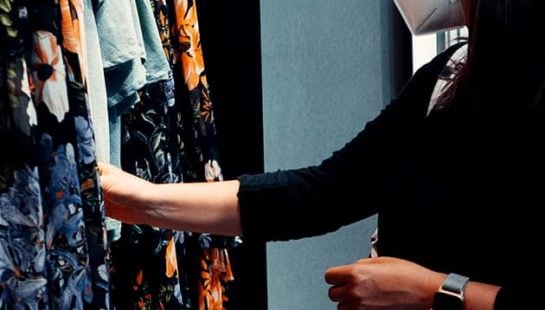Unless it involves books or boats I’m not a particularly enthusiastic shopper. I’d rather visit the dentist for root canal surgery than spend an afternoon traipsing from one shop to another looking for clothes.
Yet despite my aversion, the reality is, I shop, and like most Australians, I shop a lot. And in recent years I’ve come to recognise that I need a theology of shopping.
Living in a modern industrial market economy I am blissfully disengaged from the stages by which products come to me. I don’t milk the cow, I buy a bottle of milk from the dairy section of the supermarket. I don’t plant seeds, tend the fields or harvest the crop; I purchase washed, cleaned and packaged fruit and veg from the fruit and veg stand; and muesli in a box from the breakfast cereals aisle. Such disengagement means it is easy to forget that the stuff I consume represents the end stage of a long process that involves God, the Earth and people from all corners of the planet. And that means that consuming is always an action connected to God, to Earth and to others.
If I trace back through the chain of production, it will always bring me to God; for everything I consume is ultimately derived from the world He created and is given shape by the ingenuity and creativity that He gifted humanity. So my shopping can be an act of worship, an occasion for gratitude. God has given us an incredibly beautiful and abundant world, designed to fill up our senses, nourish our bodies and sustain our existence. Whether it be the fuel that powers my car, the food that strengthens my body, the clothes that keep me warm or the book that I enjoy reading, it is right to give thanks to God for them and for the chain of people stretching across the world who have contributed their giftedness to their production and supply.
Shopping is also an opportunity to exercise God’s call to steward the Earth and to love my neighbour. Scientists tell us that the sheer scale of consumption has set us on a path of unsustainable use of the Earth’s resources. Species are disappearing at a frightening rate, the oceans are acidifying, the climate is changing and dead zones are appearing in our rivers and seas. Every time I enter a shopping mall I hear the seductive voice of consumerism promising me that I can have everything I desire; but concealing the terrible consequences of that promise.
So I will seek to purchase in ways that minimise my impact upon the earth, both limiting my levels of consumption and purchasing products that are eco-friendly.
And I will shop as somebody who takes seriously God’s call to love my neighbour, remembering the teaching of Jesus that every human being is my neighbour. This includes the farmer in West Africa who grows the coffee beans I grind and the garment worker in Bangladesh who makes the T-shirt I wear. I recognise that in choosing to buy their products I am supporting their livelihoods; that my simple act of purchasing the product they made is an act of love that contributes to the income they need to live decently. Yet I am also very aware that the workers of the developing world are often paid poverty level wages and work in unsafe conditions. Love for them should then drive me to demand that the multinational firms controlling the supply chain love their neighbour by paying fair wages and providing fair working conditions. Just because the market allows them to pay poverty level wages doesn’t mean they should. A theology of shopping tells me that my role as a shopper does not begin when I enter the store and conclude when I leave it, but continues in ongoing prophetic activism.
Why do I need a theology of shopping? Because shopping connects us to God, creation and our fellow human being. It is an inherently religious act, an opportunity to live thankfully and dependently upon our Creator, to participate in the Creator’s call to steward the planet and to fulfil our Creator’s call to love our neighbour.


 Sarah Knop,
Sarah Knop,

 Baptist World Aid
Baptist World Aid